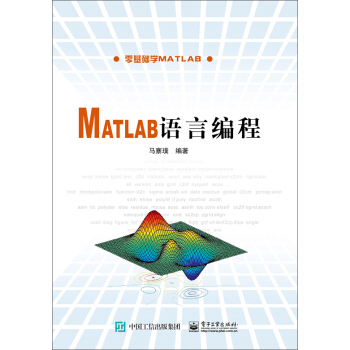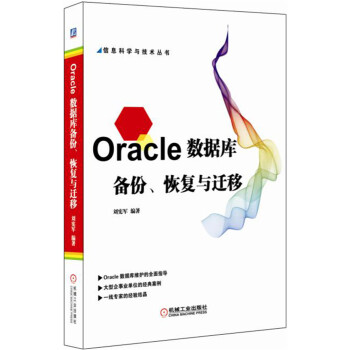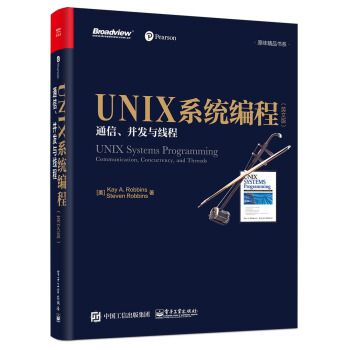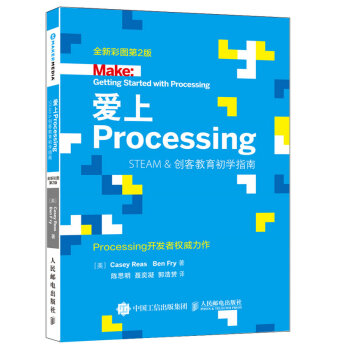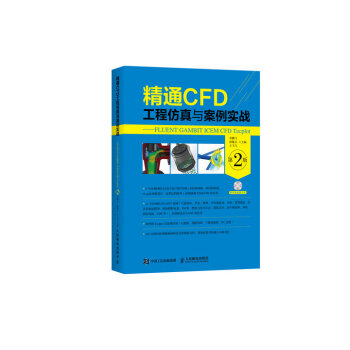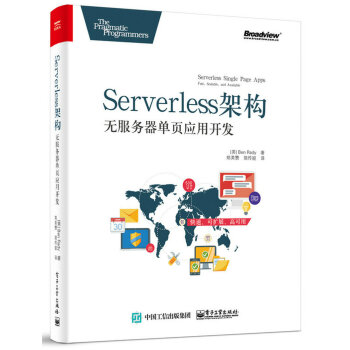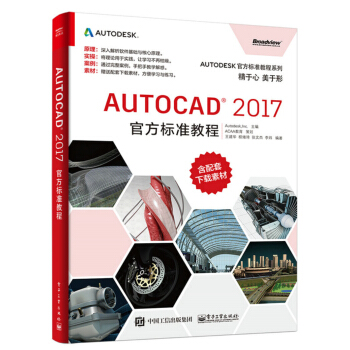

具體描述
産品特色
編輯推薦
適讀人群 :C語言編程人員及愛好者本書將嚮你講解如何使用C程序設計語言來編寫程序。無論是剛入門的初級程序員,還是經驗豐富的資深程序員,都可以在本書的幫助下徹底理解這門語言,它是許多麵嚮對象程序設計語言(比如C++、Objective-C、C#和Java)的基礎。
本書通過示例來教授C語言,每個新概念都有完整的C程序做演示。Stephen Kochan逐步解釋瞭所有C函數。你不僅可以學習這門語言的基礎知識,還能養成良好的程序設計習慣。每章最後的習題使本書非常適於課堂學習或自學。
本書涵蓋瞭C語言的所有特性,包括C11標準中新增的內容。附錄中詳盡總結瞭C語言和C語言庫,兩者的組織形式都便於快速參考。
內容簡介
《C語言程序設計(第4版)英文版》全麵介紹瞭C語言的各種特性,包括C11中增加的內容。《C語言程序設計(第4版)英文版》中包含大量完整的示例及詳細的講解。附錄中詳盡總結瞭C語言和C語言庫,兩者的組織形式都便於快速參考。《C語言程序設計(第4版)英文版》通過示例來教授C語言,每個新概念都有完整的C程序做演示。你不僅可以學習這門語言的基礎知識,還能養成良好的程序設計習慣。另外,每章最後附有習題,便於課堂學習或自學。
無論是否擁有編程經驗,你都可以通過本書透徹地理解C語言。
作者簡介
Stephen G. Kochan,撰寫及閤作撰寫瞭六本經典的程序設計與Unix書籍,包括Unix Shell Programming和Programming in Objective-C。他曾任AT&T;貝爾實驗室的軟件顧問,從事Unix和C程序設計的開發與授課工作。精彩書評
對於任何開始學習使用C語言編寫程序的人來說,這本書都是極好的。這是一本優秀的入門教科書,擁有豐富的示例、齣色的文字……我就是用這本書來學習C語言的——這是一本超棒的書。——Vinit S. Carpenter,Learn C/C++ Today
目錄
Introduction
1 Some Fundamentals
Programming
Higher-Level Languages
Operating Systems
Compiling Programs
Integrated Development Environments
Language Interpreters
2 Compiling and Running Your First Program
Compiling Your Program
Running Your Program
Understanding Your First Program
Displaying the Values of Variables
Comments
Exercises
3 Variables, Data Types, and Arithmetic Expressions
Understanding Data Types and Constants
The Integer Type int
The Floating Number Type float
The Extended Precision Type double
The Single Character Type char
The Boolean Data Type _Bool
Type Specifiers: long , long long , short , unsigned , and signed
Working with Variables
Working with Arithmetic Expressions
Integer Arithmetic and the Unary Minus Operator
Combining Operations with Assignment: The Assignment Operators
Types _Complex and _Imaginary
Exercises
4 Program Looping
Triangular Numbers
The for Statement
Relational Operators
Aligning Output
Program Input
Nested for Loops
for Loop Variants
The while Statement
The do Statement
The break Statement
The continue Statement
Exercises
5 Making Decisions
The if Statement
The if-else Construct
Compound Relational Tests
Nested if Statements
The else if Construct
The switch Statement
Boolean Variables
The Conditional Operator
Exercises
6 Working with Arrays
Defining an Array
Using Array Elements as Counters
Generating Fibonacci Numbers
Using an Array to Generate Prime Numbers
Initializing Arrays
Character Arrays
Base Conversion Using Arrays
The const Qualifier
Multidimensional Arrays
Variable Length Arrays
Exercises
7 Working with Functions
Defining a Function
Arguments and Local Variables
Function Prototype Declaration
Automatic Local Variables
Returning Function Results
Functions Calling Functions Calling...
Declaring Return Types and Argument Types
Checking Function Arguments
Top-Down Programming
Functions and Arrays
Assignment Operators
Sorting Arrays
Multidimensional Arrays
Global Variables
Automatic and Static Variables
Recursive Functions
Exercises
8 Working with Structures
The Basics of Structures
A Structure for Storing the Date
Using Structures in Expressions
Functions and Structures
A Structure for Storing the Time
Initializing Structures
Compound Literals
Arrays of Structures
Structures Containing Structures
Structures Containing Arrays
Structure Variants
Exercises
9 Character Strings
Revisiting the Basics of Strings
Arrays of Characters
Variable-Length Character Strings
Initializing and Displaying Character Strings
Testing Two Character Strings for Equality
Inputting Character Strings
Single-Character Input
The Null String
Escape Characters
More on Constant Strings
Character Strings, Structures, and Arrays
A Better Search Method
Character Operations
Exercises
10 Pointers
Pointers and Indirection
Defining a Pointer Variable
Using Pointers in Expressions
Working with Pointers and Structures
Structures Containing Pointers
Linked Lists
The Keyword const and Pointers
Pointers and Functions
Pointers and Arrays
A Slight Digression About Program Optimization
Is It an Array or Is It a Pointer?
Pointers to Character Strings
Constant Character Strings and Pointers
The Increment and Decrement Operators Revisited
Operations on Pointers
Pointers to Functions
Pointers and Memory Addresses
Exercises
11 Operations on Bits
The Basics of Bits
Bit Operators
The Bitwise AND Operator
The Bitwise Inclusive-OR Operator
The Bitwise Exclusive-OR Operator
The Ones Complement Operator
The Left Shift Operator
The Right Shift Operator
A Shift Function
Rotating Bits
Bit Fields
Exercises
12 The Preprocessor
The #define Statement
Program Extendability
Program Portability
More Advanced Types of Definitions
The # Operator
The ## Operator
The #include Statement
System Include Files
Conditional Compilation
The #ifdef, #endif, #else, and #ifndef Statements
The #if and #elif Preprocessor Statements
The #undef Statement
Exercises
13 Extending Data Types with the Enumerated Data Type, Type Definitions, and Data Type Conversions
Enumerated Data Types
The typedef Statement
Data Type Conversions
Sign Extension
Argument Conversion
Exercises
14 Working with Larger Programs
Dividing Your Program into Multiple Files
Compiling Multiple Source Files from the Command Line
Communication Between Modules
External Variables
Static Versus Extern Variables and Functions
Using Header Files Effectively
Other Utilities for Working with Larger Programs
The make Utility
The cvs Utility
Unix Utilities: ar, grep, sed, and so on
15 Input and Output Operations in C
Character I/O: getchar() and putchar()
Formatted I/O: printf() and scanf()
The printf() Function
The scanf() Function
Input and Output Operations with Files
Redirecting I/O to a File
End of File
Special Functions for Working with Files
The fopen Function
The getc() and putc() Functions
The fclose() Function
The feof Function
The fprintf() and fscanf() Functions
The fgets() and fputs() Functions
stdin, stdout, and stderr
The exit() Function
Renaming and Removing Files
Exercises
16 Miscellaneous and Advanced Features
Miscellaneous Language Statements
The goto Statement
The null Statement
Working with Unions
The Comma Operator
Type Qualifiers
The register Qualifier
The volatile Qualifier
The restrict Qualifier
Command-line Arguments
Dynamic Memory Allocation
The calloc() and malloc() Functions
The sizeof Operator
The free Function
Exercises
17 Debugging Programs
Debugging with the Preprocessor
Debugging Programs with gdb
Working with Variables
Source File Display
Controlling Program Execution
Getting a Stack Trace
Calling Functions and Setting Arrays and Structures
Getting Help with gdb Commands
Odds and Ends
18 Object-Oriented Programming
What Is an Object Anyway?
Instances and Methods
Writing a C Program to Work with Fractions
Defining an Objective-C Class to Work with Fractions
Defining a C++ Class to Work with Fractions
Defining a C# Class to Work with Fractions
A C Language Summary
1.0 Digraphs and Identifiers
2.0 Comments
3.0 Constants
4.0 Data Types and Declarations
5.0 Expressions
6.0 Storage Classes and Scope
7.0 Functions
8.0 Statements
9.0 The Preprocessor
B The Standard C Library
Standard Header Files
String Functions
Memory Functions
Character Functions
I/O Functions
In-Memory Format Conversion Functions
String-to-Number Conversion
Dynamic Memory Allocation Functions
Math Functions
General Utility Functions
C Compiling Programs with gcc
General Command Format
Command-Line Options
D Common Programming Mistakes
E Resources
The C Programming Language
C Compilers and Integrated Development Environments
Miscellaneous
Index
前言/序言
用戶評價
剛開始接觸編程,選擇一本好的入門書至關重要,而這本C語言的英文版,無疑是我的幸運之選。這本書的語言風格非常幽默風趣,讓枯燥的學習過程變得生動有趣。作者善於運用類比和生動的故事來解釋抽象的概念,我記得在講解循環的時候,他用瞭一個“打地鼠”的遊戲來比喻,瞬間就讓我理解瞭循環的邏輯。而且,書中的練習題設計得非常有層次感,從簡單的填空題到復雜的編程挑戰,能夠循序漸進地鍛煉我的編程能力。我經常在完成一個章節的學習後,就立刻去做配套的練習題,及時鞏固所學知識。這本書還提供瞭一個在綫的代碼倉庫,裏麵有書中所有例子的源代碼,方便我下載和運行,這對於初學者來說,極大地降低瞭學習門檻。總的來說,這本書讓我對C語言産生瞭濃厚的興趣,也為我後續的學習打下瞭堅實的基礎。
評分作為一名已經工作多年的軟件工程師,我一直認為紮實的C語言基礎是不可或缺的。在一次偶然的機會,我接觸到瞭這本C語言的英文原版教材,它給我帶來瞭很多驚喜。這本書的講解方式非常深入,不僅僅停留在語法層麵,更注重對C語言底層原理的剖析。作者對計算機體係結構、操作係統等相關知識的引入,讓我對C語言的理解上升到瞭一個新的高度。我尤其贊賞它在講解數據結構和算法時,與C語言的結閤。書中提供的很多代碼示例,都充滿瞭實踐的智慧,能夠直接應用到實際開發中。我嘗試著將書中的一些例子移植到我目前的項目中,發現效率得到瞭顯著提升。而且,這本書的篇幅適中,內容精煉,沒有多餘的廢話,每一頁都充滿瞭乾貨。雖然我熟悉C語言,但閱讀此書仍然讓我收獲頗豐,一些我曾經模糊的概念,通過這本書的講解,變得清晰無比。
評分我是一名對編程充滿好奇心的非計算機專業的學生,一直在尋找一本能夠讓我輕鬆理解C語言的書籍。這本英文原版的C語言教材,完全超齣瞭我的預期。它最吸引我的地方在於,作者非常注重培養讀者的“編程思維”,而不僅僅是教授語法規則。書中大量的案例分析,展示瞭如何將現實世界的問題轉化為計算機可以解決的問題,並通過C語言代碼實現。這種“從問題到代碼”的引導方式,讓我覺得編程不再是遙不可及的技能,而是解決實際問題的工具。我尤其喜歡它在講解函數部分時,強調瞭“模塊化”的思想,這讓我意識到,寫齣清晰、可復用的代碼是多麼重要。這本書的敘述方式也很嚴謹,對於一些容易混淆的概念,都會進行細緻的辨析,避免讓我産生誤解。雖然是英文原版,但作者的遣詞造句都非常考究,清晰明瞭,即使是初學者也能逐步適應。
評分這本書簡直是C語言入門的聖經!我之前嘗試過幾本其他語言的C書,但都覺得講得太抽象,或者例子太簡單,根本抓不住重點。直到我遇到這本,感覺像是終於找到瞭燈塔。從最基礎的變量、數據類型講起,每一個概念都用清晰的語言解釋,並且配以大量貼閤實際的例子,讓你能立刻動手實踐,加深理解。作者的寫作風格非常平易近人,沒有那些枯燥的術語堆砌,而是用一種循序漸進的方式引導讀者。我尤其喜歡它在講解指針的部分,真的是我見過最透徹的闡述瞭,以前一直對指針感到畏懼,讀完之後豁然開朗。而且,這本書的排版也很棒,代碼塊清晰易讀,各種圖示也很直觀,學習起來一點都不費力。雖然是英文原版,但對於我這種有一定英語基礎的學習者來說,讀起來毫無障礙,反而能體會到原汁原味的C語言錶達。總而言之,如果你想真正理解C語言,而不是僅僅記住語法,這本書絕對是你的不二之選。
評分我是一名計算機專業的學生,在學習C語言的過程中,這本書給我帶來瞭巨大的幫助,可以說是貫穿我整個課程的“好戰友”。它不僅僅是一本教材,更像是一位經驗豐富的老師,能夠在我遇到睏難的時候及時指點迷津。書中對於一些比較復雜的概念,比如內存管理、文件操作,都做瞭非常詳盡的講解,並且給齣瞭多種實現方式,讓我能夠從不同的角度去理解。作者在細節上的處理也做得非常到位,比如對各種錯誤情況的分析和處理建議,以及對代碼效率的考量。我記得有一次我在做一個項目的時候遇到瞭一個棘手的bug,查閱瞭很多資料都沒找到原因,最後翻到這本書裏關於對應模塊的章節,纔恍然大悟,原來是我對某個細節理解有誤。這本書的結構也很閤理,章節之間的邏輯聯係緊密,能夠幫助我建立起一個完整的知識體係。而且,它還包含瞭很多進階的內容,讓我即使在完成瞭基礎學習之後,也能不斷探索和深化。
評分品相很不好好!!!!!!!!!!!!!!!!!!!!!!!!!!!
評分品相很不好好!!!!!!!!!!!!!!!!!!!!!!!!!!!
評分品相很不好好!!!!!!!!!!!!!!!!!!!!!!!!!!!
評分品相很不好好!!!!!!!!!!!!!!!!!!!!!!!!!!!
評分品相很不好好!!!!!!!!!!!!!!!!!!!!!!!!!!!
評分品相很不好好!!!!!!!!!!!!!!!!!!!!!!!!!!!
評分品相很不好好!!!!!!!!!!!!!!!!!!!!!!!!!!!
評分品相很不好好!!!!!!!!!!!!!!!!!!!!!!!!!!!
評分品相很不好好!!!!!!!!!!!!!!!!!!!!!!!!!!!
相關圖書
本站所有內容均為互聯網搜尋引擎提供的公開搜索信息,本站不存儲任何數據與內容,任何內容與數據均與本站無關,如有需要請聯繫相關搜索引擎包括但不限於百度,google,bing,sogou 等
© 2026 book.coffeedeals.club All Rights Reserved. 靜流書站 版權所有



